Starting a home bakery can be a dream come true for many baking enthusiasts. However, navigating the legal requirements can be daunting. In Massachusetts, the Cottage Food Laws allow individuals to operate a home-based food business, including bakeries, under certain regulations.
Key Takeaways
- Understanding Massachusetts Cottage Food Laws is essential for starting a home bakery.
- Registering your home bakery is a critical step in the process.
- Labeling and packaging requirements are crucial for compliance.
- Sales limitations and gross sales thresholds are key factors to consider.
- Maintaining records and complying with inspections is necessary.
Understanding Massachusetts Cottage Food Laws
Navigating the Massachusetts Cottage Food Laws is essential for home bakers looking to turn their passion into a business. These laws are designed to provide a safe and legal way for individuals to sell homemade foods, ensuring compliance with state health and safety regulations.
What Are Cottage Food Laws in Massachusetts?
Massachusetts Cottage Food Laws allow individuals to operate a home-based food business without a commercial kitchen. These laws permit the sale of specific homemade foods, such as baked goods, jams, and honey, directly to consumers. The laws are intended to support small-scale food producers and provide opportunities for entrepreneurs to start a business with minimal regulatory hurdles.
Types of Permits: Retail vs. Wholesale Residential Kitchens
In Massachusetts, home bakers can operate under different types of permits, depending on whether they are selling directly to consumers (retail) or to businesses (wholesale). A Retail Residential Kitchen permit allows home bakers to sell directly to consumers, while a Wholesale Residential Kitchen permit is required for selling to businesses. Understanding the differences between these permits is crucial for compliance with state regulations.
| Permit Type | Description | Sales Outlet |
|---|---|---|
| Retail Residential Kitchen | Permit for selling directly to consumers | Farmers’ markets, online, direct sales |
| Wholesale Residential Kitchen | Permit for selling to businesses | Restaurants, cafes, specialty food stores |
Allowed and Prohibited Food Products
Under Massachusetts Cottage Food Laws, certain food products are allowed for sale, while others are prohibited. Allowed foods include baked goods, such as cakes, cookies, and bread, as well as jams, honey, and other non-hazardous foods. Prohibited foods include items that require refrigeration, such as dairy products and meats, as well as foods that are considered hazardous, like those containing raw eggs or requiring temperature control.
Steps to Start Your Home Bakery Business
The journey to establishing a home bakery in Massachusetts involves several key steps, from kitchen preparation to labeling requirements. Complying with state regulations is crucial to ensure your business operates legally and safely.
Kitchen Requirements and Inspection Process
Before you can start selling your baked goods, your home kitchen must meet specific health and safety standards. This involves an inspection by local health authorities to ensure your kitchen is clean, well-maintained, and equipped with necessary facilities. Preparing your kitchen for inspection includes ensuring that all equipment is in good condition, you have adequate storage for ingredients and baked goods, and you follow proper food handling practices.
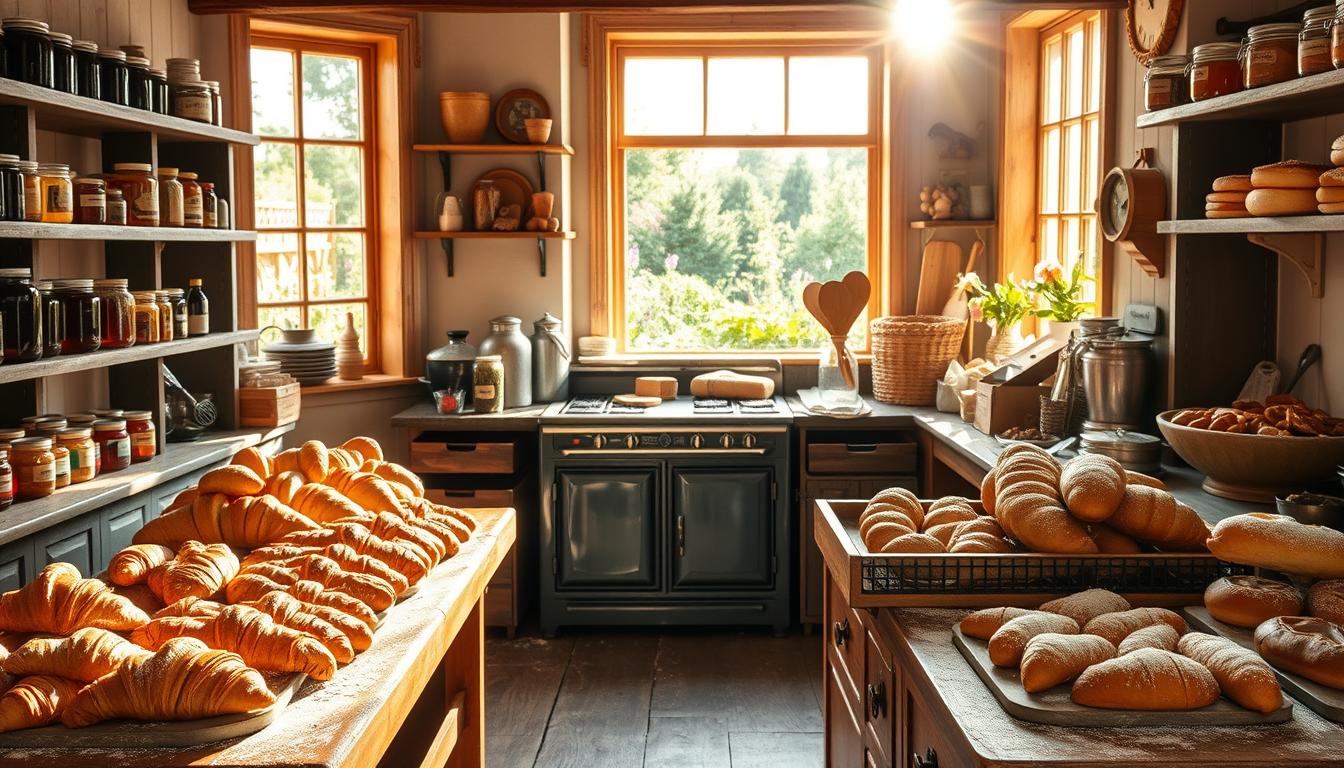
Obtaining Necessary Permits and Licenses
To operate a home bakery in Massachusetts, you’ll need to obtain the required permits and licenses. This typically includes a food establishment permit from your local board of health. The process involves submitting an application, paying the required fees, and complying with the Cottage Food Law regulations. It’s essential to check with your local authorities for specific requirements, as these can vary.
Food Safety Training and Certification
Undergoing food safety training is a critical step in starting your home bakery. Massachusetts requires home bakers to complete a food safety course approved by the Department of Public Health. This training equips you with the knowledge to handle food safely, prevent contamination, and maintain a clean environment. Certification demonstrates your commitment to health and safety standards, reassuring your customers of the quality of your products.
Labeling Requirements for Home-Baked Goods
Proper labeling of your baked goods is not only a legal requirement but also a way to build trust with your customers. Massachusetts Cottage Food Law specifies that home-baked goods must be labeled with the name and address of the bakery, the name of the product, and a list of ingredients. Accurate labeling helps customers with dietary restrictions and preferences, enhancing your bakery’s reputation.
| Requirement | Description |
|---|---|
| Kitchen Inspection | Ensuring the home kitchen meets health and safety standards |
| Permits and Licenses | Obtaining necessary permits, such as a food establishment permit |
| Food Safety Training | Completing a food safety course approved by the Department of Public Health |
| Labeling | Labeling baked goods with name, address, product name, and ingredients |
From Hobby to Business: Making Your Massachusetts Home Bakery Successful
Turning your home bakery into a successful cottage food business requires more than just baking skills. It demands a solid understanding of marketing home-baked goods, complying with regulatory requirements, and creating a strong brand identity.
To start selling cottage food, you’ll need to obtain the necessary business license and register your business name. This will not only help you establish a professional presence but also ensure you’re operating within the bounds of Massachusetts law.
When it comes to selling your products in retail stores, be prepared to meet specific requirements, such as packaging and labeling regulations. Focus on developing a unique selling proposition and creating an attractive brand image to stand out in the competitive food industry.
By following these strategies and staying up-to-date with regulatory requirements, you can transform your home bakery into a thriving cottage food business, reaching new customers and achieving long-term success.
FAQ
What are the Massachusetts Cottage Food Laws?
Massachusetts Cottage Food Laws allow individuals to operate a food business from their home, with certain restrictions on the types of food that can be sold and the sales venues.
What type of food products are allowed under Massachusetts Cottage Food Laws?
Non-potentially hazardous foods such as baked goods, jams, honey, and candy are allowed. However, foods that require hot or cold holding for safety, like cream-filled pastries, are not permitted.
Do I need a permit to start a cottage food business in Massachusetts?
Yes, a permit is required from the local Board of Health. The permit ensures that your home kitchen meets the necessary health and safety standards.
What are the kitchen requirements for a cottage food operation?
Your home kitchen must be inspected and approved by the local Board of Health. The kitchen must meet specific requirements, including proper food handling and storage practices.
Is food safety training required for cottage food producers?
While not always mandatory, food safety training is highly recommended to ensure compliance with state regulations and to maintain a safe food handling environment.
Can I sell my cottage food products wholesale?
Massachusetts Cottage Food Laws generally restrict sales to retail. Wholesale operations may require different permits and compliance with different regulations.
What are the labeling requirements for cottage food products?
Cottage food products must be labeled with the name and address of the producer, the name of the product, and a statement indicating that the product was made in a home kitchen that is not inspected by the state or local health department.
Can I sell my cottage food products in retail stores?
Yes, but you must comply with the regulations regarding labeling and sales. Additionally, some retail stores may have their own requirements or restrictions.
How do I obtain a permit for my cottage food business?
Contact your local Board of Health to inquire about the permit application process and the necessary documentation and inspections required.
Are there any limits on the types of businesses that can operate under Massachusetts Cottage Food Laws?
Yes, the laws are designed for small-scale, home-based food businesses. There may be limits on sales volume or the types of products that can be sold.
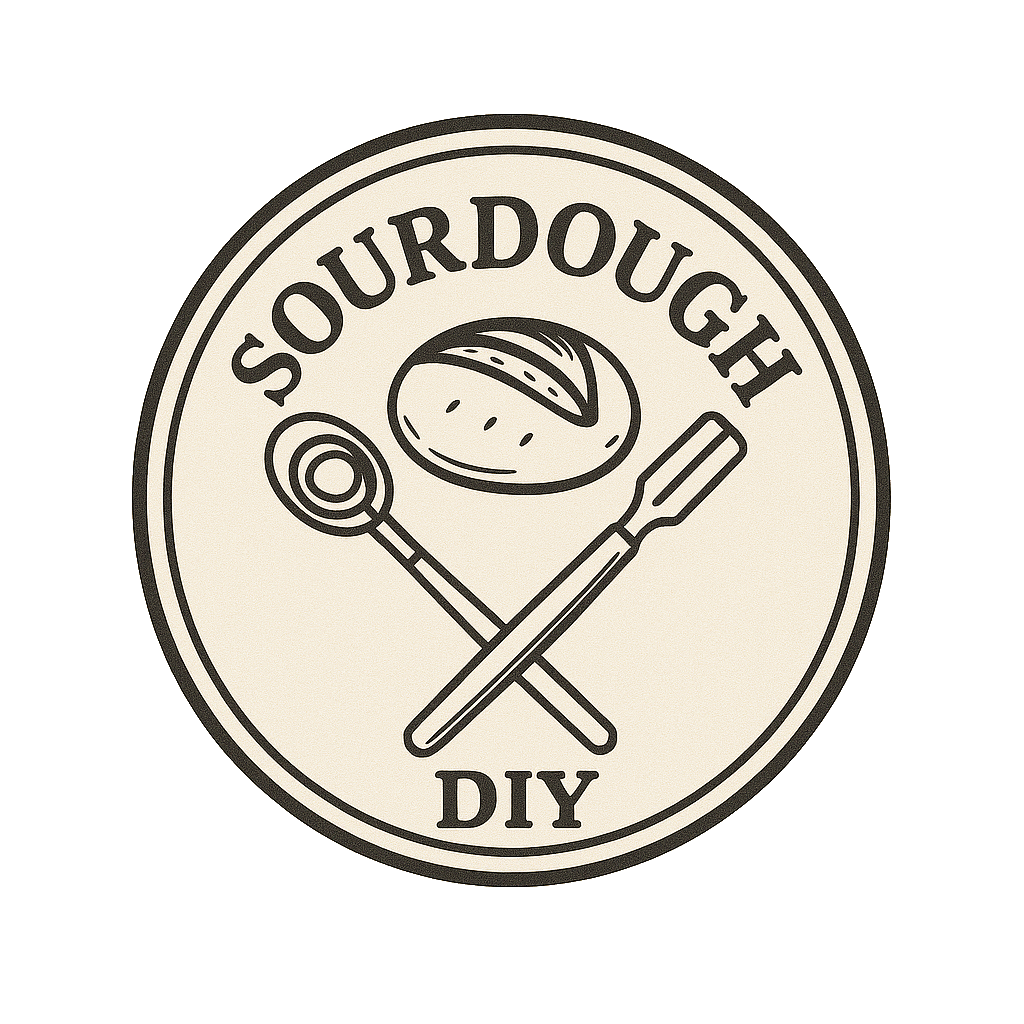
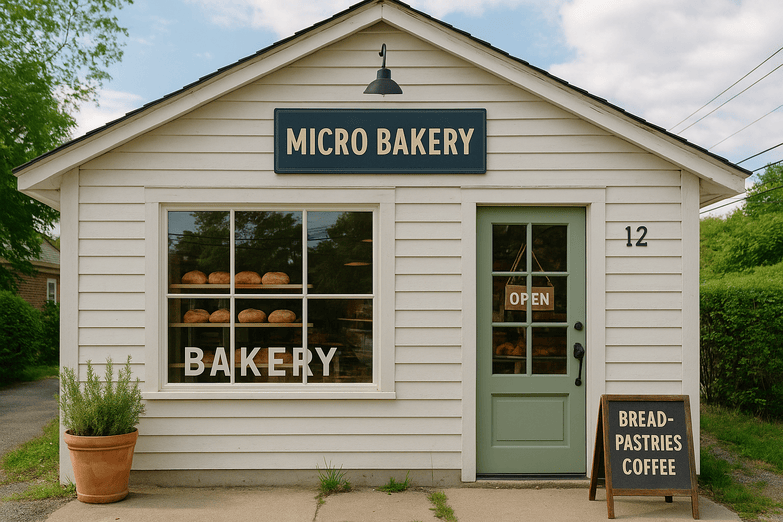
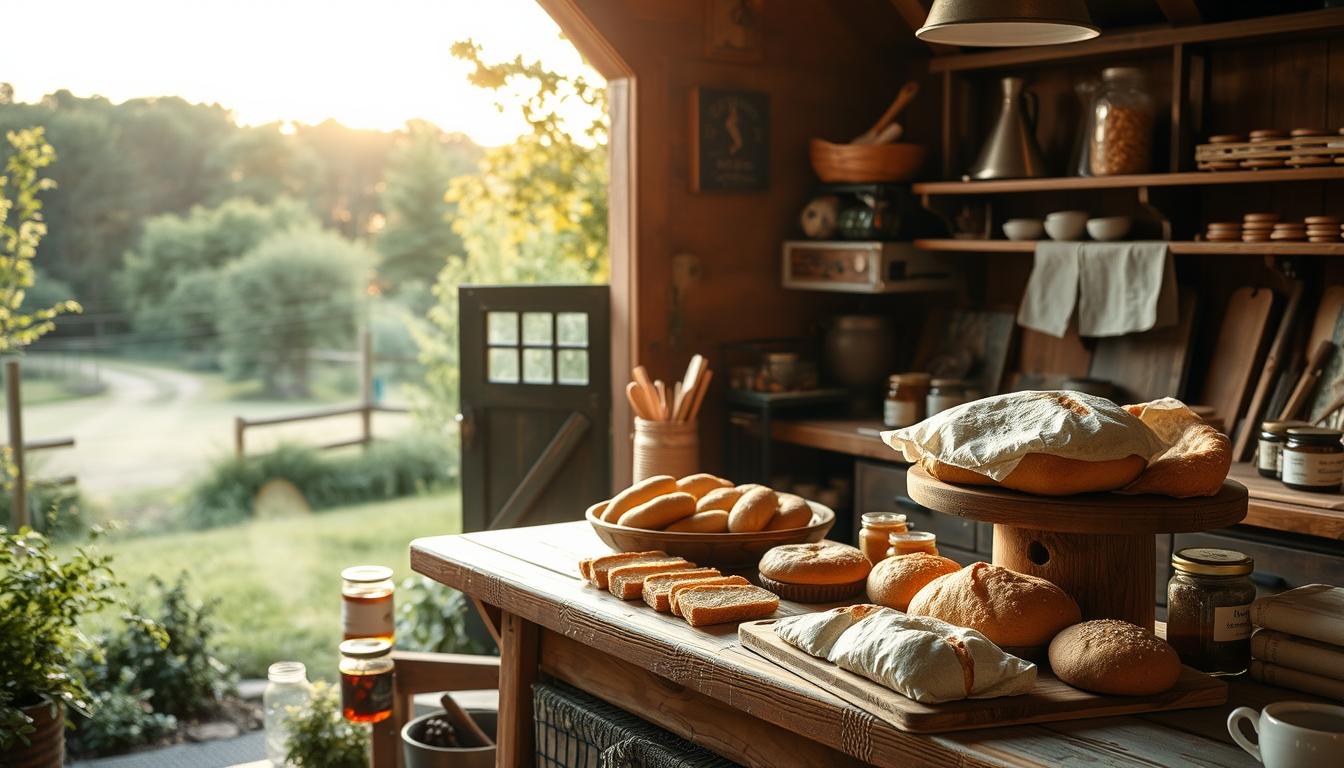
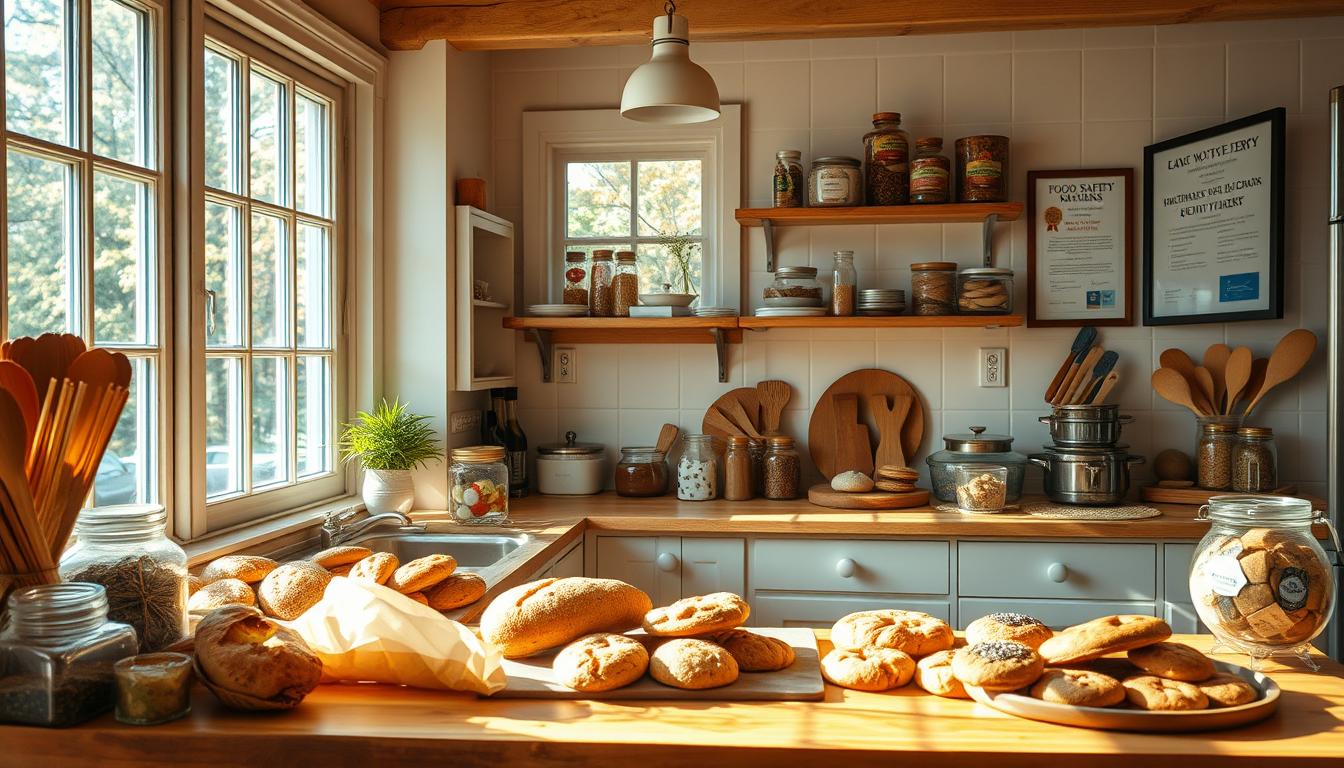
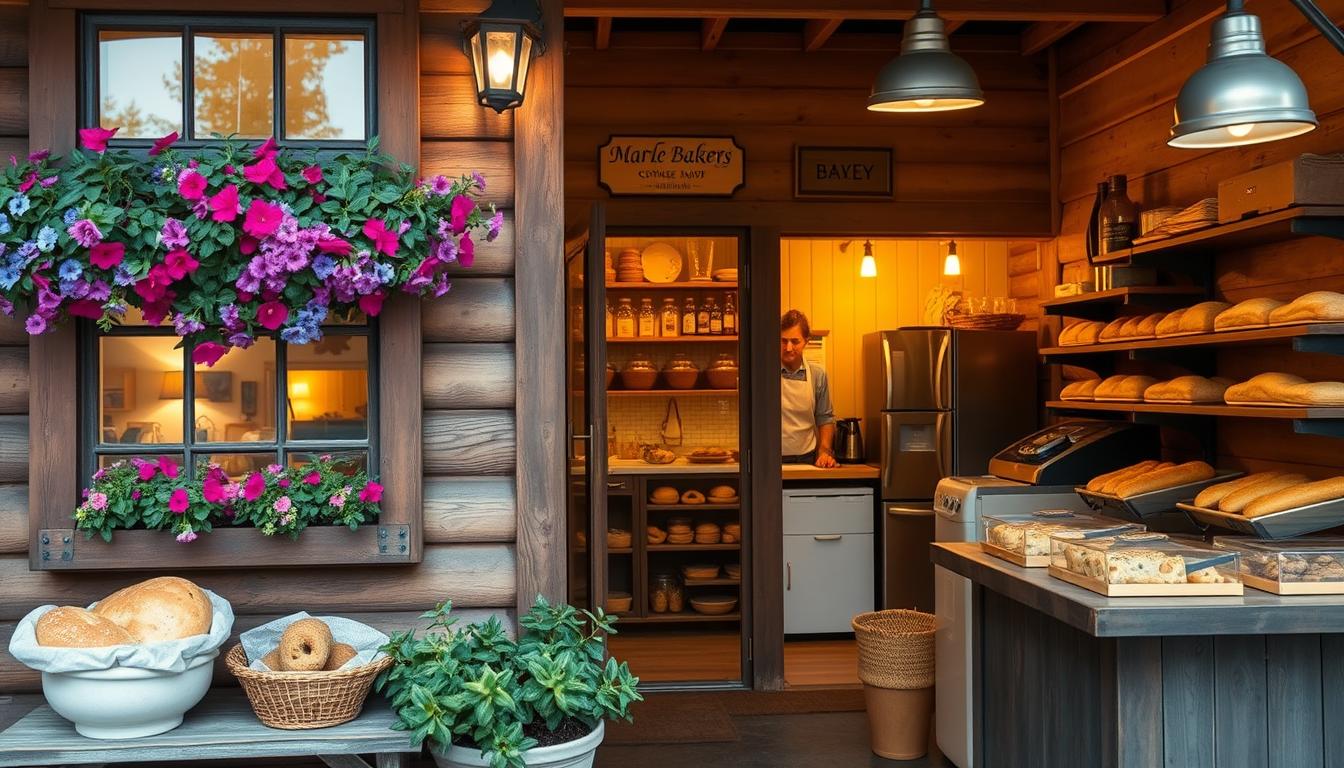
Leave a Reply